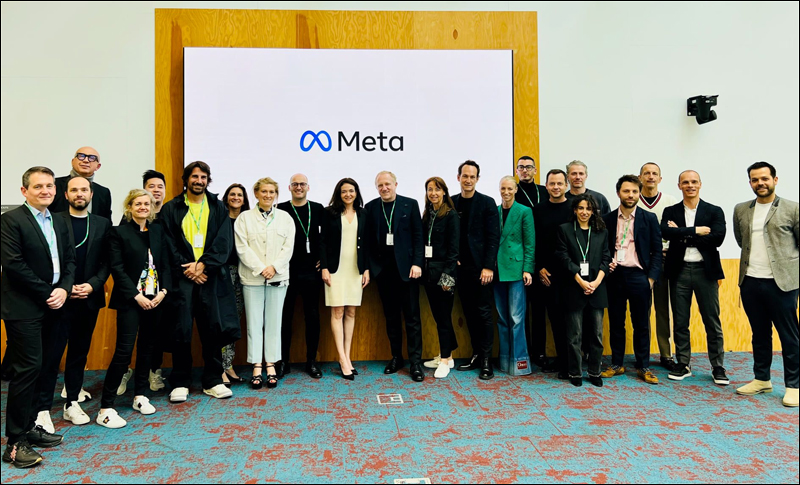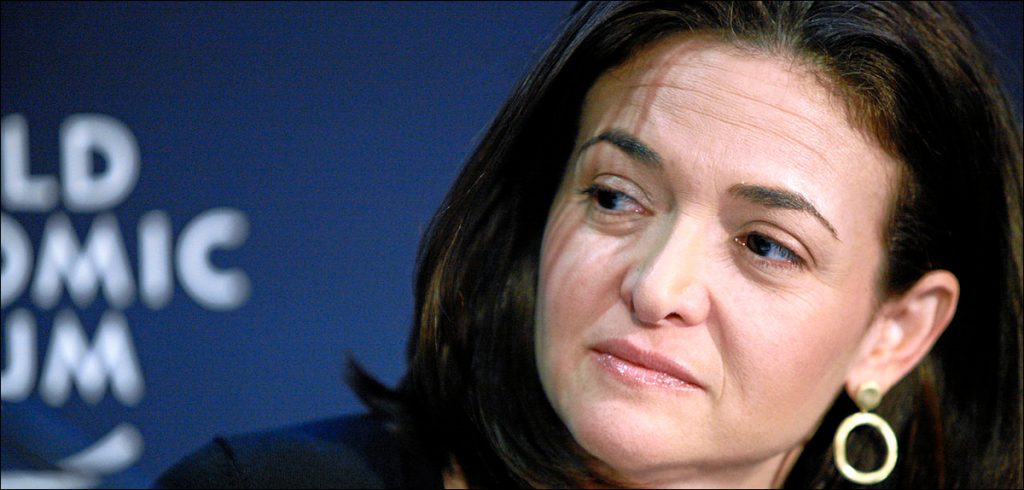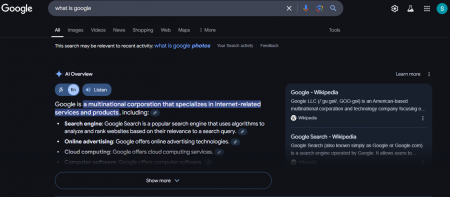Sandberg’s 14 years of leadership at the top social media company was marked by “lean in” feminism, says Adarsh
“You don’t get to 500 million friends without making a few enemies!” The tagline of the 2010 Hollywood blockbuster The Social Network, based on the success story of Facebook CEO and Founder Mark Zuckerberg, holds true for his trusted lieutenant Sheryl Sandberg as well.
As the advertising head at Google in the early 2000s, and later as the Chief Operating Officer of Facebook from 2008, Sandberg took the advertising wing of both organizations to unprecedented heights, establishing them for what they are today. But more importantly, she is recognized as the flagbearer of corporate feminism, paving the way for women and showing them how they can juggle a successful career while also maintaining a healthy work-life balance.
From criticism about Facebook’s lack of concern about hate speech and data privacy to accusations about how her stance on feminism and success comes from a place of wealth and privilege, there have been naysayers throughout her journey.

The Final Curtain Call
At the start of June 2022, Sandberg announced that she would be vacating her position at Meta Platforms, wanting to focus more on her personal life as well as her philanthropic pursuits. In a long Facebook post, she spoke about her decision and her plans for the future: “When I took this job in 2008, I hoped I would be in this role for five years. Fourteen years later, it is time for me to write the next chapter of my life. I am not entirely sure what the future will bring – I have learned no one ever is. But I know it will include focusing more on my foundation and philanthropic work, which is more important to me than ever given how critical this moment is for women. And as Tom (Bernthal) and I get married this summer, parenting our expanded family of five children.”

Today, I am sharing the news that after 14 years, I will be leaving Meta.
When I first met Mark, I was not really looking for a new job – and I could have never predicted how meeting him would change my life. Read full post
Zuckerberg called it “the end of an era” and offered high praise for Sandberg, calling her an “amazing person, leader, partner, and friend.”

“In the 14 years we’ve worked together, you’ve architected our ads business, hired great people, forged our management culture, and taught me how to run a company,” wrote Zuckerberg, in response to her Facebook post. “Thank you for all you’ve done for me and my family, for our company, and for millions of people around the world. You’re a superstar!”
An Entrepreneurial Genius
There is no doubting the fact that Sandberg has been one of the most powerful executives in Silicon Valley. She took Google’s advertising business to such unprecedented heights that it became an integral part of every company’s advertising budget. Moving to Facebook at Zuckerberg’s insistence and – in her own words – ” to be the adult in the room”, she took a different approach for advertising on the social media site. Unlike Google which targeted users based on their search queries, Facebook acquired them based on personal information, connections and interests. It sparked a revolution with other tech companies following suit, offering their products for free and making money through personal information they collected from users.
To put things into context, Facebook’s annual revenue went from $200 million in 2008 to a whopping $117 billion in 2021. Her immediate reportees have nothing but praise for her work ethic and approach as a business leader.
“One of the great things about working for Sheryl is she never wasted a minute of anyone’s time – her own or anyone else’s. She was really, really focused on getting things done,” said Kim Scott, who reported to Sandberg at Google.

Dan Rose, a venture capitalist who worked for Sandberg for over a decade, hailed her as “a demanding boss who held me to a high standard“. Dan added that Sandberg was someone who pushed him hard but also celebrated him and inspired lifelong loyalty.
A Feminist Icon
Apart from her entrepreneurial exploits, Sandberg also became a torchbearer for women at the workplace. Her 2013-bestseller ‘Lean In’ encouraged working women to take charge. Leading by example, she showed how one could balance raising a family without compromising on one’s career ambitions. She practiced what she called “ruthless prioritization”, leaving the workplace every day at 5:30 PM so that she could have dinner with the kids.

The aforementioned bestseller, which carries memoirs and mantras, urged women to “lean in” and take charge of their lives. What started as a TedTalk and turned into a book transformed into a network of in-person groups around the world. Sandberg attends several of these virtual meets, addressing women across the globe and urging them to “bring their whole self to work” and “be authentic” in their professional life.
After she lost her husband, SurveyMonkey CEO Dave Goldberg in an accident in 2015, she wrote her second book, Option B, which sought to help other women to get back on their feet after tragedy strikes.
A Fallen Angel
But for all her success stories, there also exists a dark side to Sandberg’s success. She may have turned Facebook into a global giant through personal ads, there is no denying that she turned a blind eye towards data privacy, hate speeches, misinformation and more.
Apart from heading its advertising wing, Sandberg also oversaw the company’s public policy team which soon became replete with controversy around perceived censorship, misinformation, and allegations of training politicians who later used Facebook to manipulate the public.
Yael Eisenstat, who headed the elections integrity team for political ads at Facebook in 2018, has accused Sandberg of not having a conscience. “It has been proven that the way Facebook scaled recklessly, intentionally, to dominate the entire global way that we communicate – it’s exactly that reckless ability to scale that ended up causing so much chaos and actual harm in many places. I’ve never seen an ounce of self-awareness from her that she played any role in that.”
Sandberg has twice pressed a British publication to shelve a potential article about Activision Blizzard CEO Bobby Kotick whom she was dating. She relied on a team that included both Facebook and Activision employees, as well as paid outside advisers to block the article.
The Latest Controversy
Barely a week after her widely-publicized exit from Meta, the WSJ revealed that it might have been sparked by the organization looking into a possible misuse of Facebook resources.
According to the claims, Sandberg may have had Facebook employees actively engaged in work that supported her Lean In foundation during office hours. The second allegation is that she may have pulled Facebook employees into the writing and promotion of her second book Option B. And a third claim suggests that she diverted the time and attention of Facebook employees to her upcoming wedding this summer.
These claims suggest it might not have been the glorious curtain call that everyone had believed and that she might even have been pressurized into stepping down as the investigation continues.
A Confusing Legacy
“I’m especially proud that this is a company where many, many exceptional women and people from diverse backgrounds have risen through our ranks and become leaders – both in our company and in leadership roles elsewhere,” wrote Sandberg in her retirement post. Read Full Post
She is, after all, one in a small list of women who rose to prominence at a major tech company. She rose to the level of founders like Larry Page and Zuckerberg. Over the decades, there have been a few others – Marissa Mayer of Yahoo, Meg Whitman of Hewlett Packard Enterprise and Ginni Rometty of IBM. But most of them have departed, often with their reputations in shreds. Some women in high ranking positions at major tech companies like Twitter’s general counsel Vijaya Gadde have become targets of harassment. Others like Françoise Brougher, the former Chief Operating Officer at Pinterest, have sued for discrimination. This does not bode well for aspiring women.
According to Jenny Lefcourt, Founder of All Raise, a nonprofit focused on advancing gender and racial equality: “The CEO is the face of the company, and in the tech industry, somehow collectively the world seems to want the face to be a white man!“
At Silicon Valley’s top 150 firms in terms of revenue, just 4.8% were led by women at the end of 2020, according to a report by the law firm Fenwick & West. The percentage of female CEOs of companies in the S&P 500 index stood at an abysmal 6%.

In recent years, there is a belief that female tech leaders are often hired to clean up someone else’s mess. So that when the critics come calling, there is someone to blame, and that someone always seems to be a woman. A term has even been coined for the situation: A glass cliff, a play on glass ceiling, the invisible barrier that gets in the way of aspiring women at the workplace.
That does not paint a pretty picture! But if you were to ask Sandberg, she would have none of that. If you are a young female entrepreneur harboring corporate ambitions, she would urge you to brush off all the negatives, to take charge of your future and to “lean in!”
In case you missed:
- Active Listening Feature on Phones raises Privacy Concerns
- Bridging the Gender Gap in AI-Based Roles
- Will AI eat up more IT Jobs in 2024?
- Why are Companies resorting to Office Peacocking?
- Introducing Universal AI Employee being built by Ema AI
- Meta AI launches on WhatsApp & Insta in India
- Meta’s Puffin Project: Future of Mixed Reality in a Pair of Glasses
- How India broke its Paralympics Medal Tally by using Assistive Tech
- How Meta AI stopped Lucknow Woman from committing Suicide
- 7 Online Scams to be Wary of in India










4 Comments
Awesome article. I shared it on linkedIn.
Thank you so much for sharing it!
Really good article that
Thank you, Lakshmi!